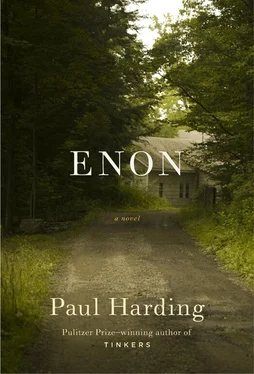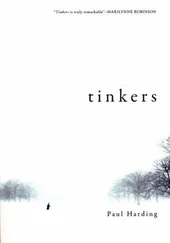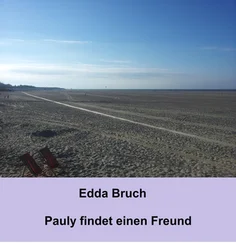“Yes, they are there by the counter,” Manny said. I hurried to the counter and picked up one of the flimsy cardboard coffee caddies and snapped it open and put the coffees in each of its four corners. I gave Manny the money and put a pack of cigarettes in each of my back pockets and wedged one in between the coffees. Tears started out of my eyes and I wiped them off with the back of my shirtsleeve.
“Phew,” I said. “I’m, ah — I’m just sorry for bothering you today, man.” I slid the box of coffees off the counter and cradled it onto my forearm. The bottom of the box was too thin to support the coffees and they wobbled.
“You have not bothered me, Mr. Crosby,” Manny said. “Let me get the door for you.” He came around the register and opened the door. He didn’t say anything about the fact that neither my supposed coworkers nor their pickup truck were anywhere to be seen.
I wiped my eyes and my nose and said, “Argh, my crew must’ve gone on to the job. Nice guys. It’s just up the street, though.” I lifted my chin in the direction back toward my house. “Little walk back will do me good. A few deep breaths.”
“Yes, Mr. Crosby, a few deep breaths will be quite good, I think,” Manny said. “And thank you for asking so kindly about my family.”
“I do hope they come soon, Manny,” I said. I stepped off the curb in front of the door, onto the parking lot. “Okay. Have a good day.” Manny nodded and went back into the store. I walked across the lot, the coffees tipping in different directions. Halfway back to my house one of the coffees tipped out of the box. Instead of letting it drop, I tried to catch it and all the coffees dropped onto the sidewalk. Three of them popped their lids when they hit the ground and the coffee spattered across the sidewalk and steamed in the cold. The fourth cup stayed sealed and coffee pulsed out of the small opening in the lid, the way blood would come out of an animal or a person, I thought, because it looked like it was being pumped through the hole, as if by a heart. I stooped and picked up the cup, which was still three-quarters full, and the pack of cigarettes I’d stuffed between the coffees, which was soaked but which I figured I could dry out by putting the cigarettes on a cookie sheet in the oven, if I could find one, if they’d gotten wet with coffee. I left the other cups and the sodden box and the spilled coffee steaming on the sidewalk and walked back to the house as fast as I could without breaking into a run.
IT IS THE CASE IN PARTICLE PHYSICS THAT WHEN TWO PHOTONS are collided together in a particle accelerator, new particles are created in the collision. As I marched home along the old railroad tracks in the western part of Enon Swamp one freezing dawn, after another night of labored and aimless roving, I thought about Kate on her bicycle and the car hitting her. Instead of her and the bike being pulled up underneath the car and mangled, I imagined an explosion and a burst of light out of which three cars and three bikes clattered, and three Kates tumbled, too, each dressed in the same cutoffs and polo shirt over the same bathing suit, wearing the same Red Sox cap. One Kate somersaulted onto the sidewalk. Another sailed into the brush. The third vaulted over one of the newly minted cars and landed on her back across the hood of another. Each girl lay dazed for a moment, then sat up and looked around, frowning at the scene, fizzing with electricity.
Then the Kates saw one another. They gasped and said in unison, “Kate?”
The girls approached one another, this one limping, that one nursing an elbow, the other patting a goose egg on her forehead, and met in a circle. It looked like a girl in a fun-house mirror except that all three images were really girls, not reflections. They touched one another’s faces, and patted one another’s hair, and asked if the others were okay, and said, “I guess so, but who are you?”
Instead of the woman who struck Kate on her knees, wailing, and her three kids screeching in the back of the minivan, there were three of her and twelve kids rioting all over the road at seeing one another’s mirror images stampeding around them. There was mayhem when the police and ambulances and fire trucks showed up, but eventually all the Kates checked out and, after agreeing with the cops what a bizarre coincidence it was that identical triplets with identical kids driving identical cars had struck identical triplets riding identical bikes, we all went home, where I was able finally to distinguish the original Kate from her two new selves, because both new Kates still had the moles on their chins that the real Kate had had removed. I imagined us laughing and joking about bunk beds and how money was going to be really tight now, but how wonderful it was to have three daughters.
“My embarrassment of Kates!” I imagined myself saying.
If you stood the three Kates in line, the original Kate first, and looked at them left to right, you’d see that their eyes went from nearly stark white to anthracite black, in an even gradation, from eye to eye, girl to girl. The original Kate’s iridescent right eye had no color in it except for the faint shadows created by the traceries of its iris and glowed when reached by even the slightest source of light. Her left eye was mostly white as well, with just a reflection of blue in its leftmost curve. The next Kate, we called her Katie the Second, had a right eye the color of a robin’s egg, with speckles of moss green and brown in it. Her left eye was brown but for a speckling of blue along its right rim. Katie the Third’s right eye was dark brown with a grain or two of gold, and her left eye was pitch-black. It seemed as if either the original Kate’s white eye was a shooting star with a white-and-blue-and-green-and-gold tail trailing across the girls’ eyes back to the blackness of space, or as if Katie Number Three’s obsidian eye was a black hole pulling all the color and light toward itself through the others.
When the three Kates came home, we turned on the radio and danced in a circle around the living room and sang and cheered at our great fortune. By the next morning, though, there were signs that something was wrong. The girls awoke with headaches that got worse by the hour. They began to have nosebleeds. The original Katie was cold all the time, even though it was summer. She sat by a sunny window wrapped in wool blankets. She made me turn the heat up to ninety and spent the morning shivering and sipping hot, milky tea. I found Katie Number Two in the kitchen eating spoonfuls of salt and sucking on a handful of coins she’d scooped from the change jar. Katie Number Three could not stand the heat or the light, and I found her in the basement, lying in the deep freezer, which she had lined with a sheet so she wouldn’t stick to the frost. All three girls died as the sun set, and instead of mourning one daughter, right away, I gained a night of fraudulent joy at the cost of losing three the next day.
IT WAS THE MIDDLE OF APRIL AND I HADN’T BEEN ABLE TO FIND Frankie for two weeks. I was nearly out of drugs. I had only a dozen painkillers left and a few muscle relaxants. I could string along what was left with whiskey, but even being as parsimonious as I could manage, I would be out of stuff within two days. My hand no longer hurt, I just wanted the drugs. The only solution I could think of was to go out that night and see if I could find houses without alarms and maybe some prescription bottles on kitchen counters or bedroom dressers or nightstands. It occurred to me that Mrs. Wallace, the woman whose lawn I’d cut and whose award-winning roses I’d read about in the Enon Daily Bread , might have drugs in her house.
Читать дальше












